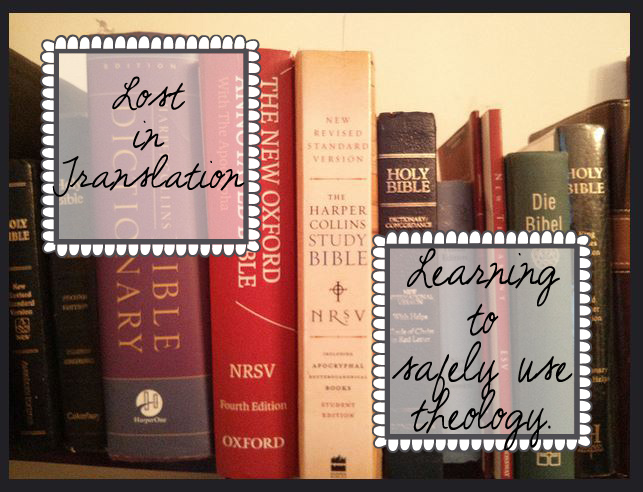|
Purpose: To connect the chasm between the faith based world of the church, and the knowledge based world of Seminary. You know what I realized? I hate using hoity toity words to explain what I am doing. I hate it because if you don't understand the words, or the words give you headaches, they are rather pointless. I could use them today, but it won't change what we are doing. Instead, I am going to be as simple as possible. The goal is to make you want to figure it out yourself, and not always rely on a minister, or a history channel show to do the work for you. I'm going to lean heavily on how the Christian Church (Disciples of Christ) saw things as examples because, well, this is a Disciple congregation. Our theology is influenced by those who have come before us. Depending on the Christian faith tradition, one might see this differently. For the Eastern Orthodox and Catholic, this would be talking about the Councils. The Councils were times in history where the Church leaders gathered and codified different aspects of what it means to be a Christian. Each Council added from the ones that came before it. A Heresy is something that is counter to the doctrine of the Cathlodox Church, or what is found in those Creeds created in the Councils. For the Protestant Church, many have a book that outlines the beliefs of their faith tradition. For example, the United Methodist Church has the Book of Discipline. For the faith traditions that come from this line of thought, it very important seminarians can understand and agree to their different points of faith that rose up from the different Creeds and meetings. Our theology is corrupted the further we get from the actual event. An old phrase in the Christian Church was "No creed but Christ. No book but the bible." It was no wonder! Alexander Campbell's father (Thomas Campbell) was the minister of a Old-Light Anti-Burgher Seceder Presbyterian Church. It was a mess. It existed over many splits as the churches tried to figure out faith. The Campbells saw it as the church becoming less like the church as the generations progressed. Therefore, it was decided they would try to restore the early church. No creeds. No commentaries. No books of worship or discipline. Just try to be the early church today. Interesting enough, the Restoration movement led to splits too. The problem with understanding the actual events is the bible was never enough. Even Alexander Campbell wrote his own commentaries and even wrote his own Theological work: The Christian System. (Great read btw). As I discussed last week, it is really easy to find yourself thinking theologically while reading the bible. That being said, it's a great to try to emulate the early church in some ways. Theology is the tension between faith now, and understanding what happened back then. This is really where I believe the Christian Church (Disciples of Christ) lives today. It is where I am theologically. No one person is capable of understanding the bible. We want to understand the event, as it happened. Therefore we look at archeology, commentaries, anything that can help us understand the story better. Then we can figure out, how does this information affect my life now. Which road one takes leads down very different and paths: Focusing on theology being the voices of those who have come before, would make faith full of creeds from the councils. Traditions become important to the space of worship. Focusing on getting back to the early church would also have a huge affect on theology. If no creeds or secondary books are allowed, even hiring a seminary educated minister could been seen as dangerous. Focusing on both is preferable in my eyes, but I will say there are dangers. Simply put, I have to constantly hold myself accountable to whether I'm putting myself before the text. It's knowing the dangers before one starts that is important. Next week, we are going to discuss some of the tools I use when dealing with that tension, and how easy it is to create extra-biblical narrative. Then we will discuss why this could be both good and bad.
|
Categories
All
Archives
October 2023
|




 RSS Feed
RSS Feed